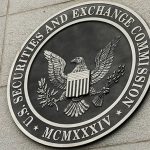U.S. SEC’s Climate Disclosure Rule May Be Unveiled Any Day from Now

The U.S. Securities and Exchange Commission (SEC) climate disclosure rule is expected to take effect any time from now. However, it has yet to be made clear when it will be unveiled, as some believe it might get delayed until later this year.
Nonetheless, it is very unlikely for its implementation to be pushed up to 2024, given that most investors and ESG experts support its core principles. The upcoming climate disclosure rule aims to emphasize the importance of ESG investing among publicly traded companies across the U.S.
Upon unveiling, it is expected that approximately 7000 companies listed on SEC will include certain climate-related disclosures in their periodic reports and registration statements. This will bring transparency to capital markets, which will also help investors make informed decisions on the companies they intend to invest in.
Why Companies Must Understand SEC’s New Disclosure Rule
There is a need for concerned companies to understand what proper compliance means in the incoming SEC regulation. The rule is expected to be more strict than the previously proposed version of 2022, which would require public companies to disclose “risks that are reasonably likely to have a material impact on their business, results of operations, or financial condition.”
However, the upcoming disclosure rule seems more comprehensive, with specific key points that companies must observe to achieve full compliance. They include;
- Information on how climate-related risks are likely to impact a company’s strategies and future expectations
- Information on risk management processes and climate-related governance
- A company’s direct GHG (greenhouse gas) emissions (Scope 1) as well as indirect emissions from purchased electricity and other forms of energy (Scope 2).
- Specifics of a company’s climate-related goals, targets, and transition plans.
- The company’s audited financial statements must indicate specific climate metrics and any related information.
So, How Prepared Are the Concerned Companies?
Based on the fact that ESG investing became increasingly popular in 2020 due to the pandemic, it is only natural that most companies are ready to uptake the incoming rule. For instance, in 2020, Nasdaq acquired a fintech startup called OneReport to accelerate the delivery of ESG reporting and workflow solutions to corporate clients. Besides, most investors and policymakers have been pushing for ESG measures in the companies they invest in.
Despite all this speculation, don’t be surprised when you learn that the majority of these companies are not prepared for the level of transparency required by the US SEC. Ivalua’s chief marketing officer, Alex Saric, believes that, overall, very few companies are truly prepared for the new rule. Ivalua is a procurement technology company focused on supply chain sustainability.
Although many companies have also been disclosing their carbon and GHG emissions to the public for quite a while, their efforts have not been consistent enough. Generally speaking, the methods used to collect this data may be sloppy, incomplete, and perhaps not up to SEC’s standards.
Why Companies Must Get Ready for the Incoming Rule
Companies need to be ready for the new rule because any form of inaction may be a wasted opportunity for them. Some entities feel they don’t need any preparations because the new rules have not taken effect. Besides, SEC Chairman Gary Gensler had earlier stated that the agency was considering making “adjustments” to the climate risk disclosure rule.
Based on these speculations, some companies have failed to prepare for the imminent disclosure, which puts them at risk of fines and penalties. They don’t understand that proper compliance with the incoming regulations may require much more work and resources on their part, which can lead to them failing to meet the required minimum due diligence before the deadline.
In that case, any forward-thinking business must understand that good governance is the backbone of an effective climate disclosure plan. Therefore, concerned companies need to appoint someone in charge of compiling and reporting the required climate-related information.
Once that is decided, the next step is to lay down the budget, infrastructure, and resources needed to meet the minimum due diligence of the incoming SEC requirements.
Final Thought
Many perceive the incoming SEC climate disclosure rule as a culmination of pressure from policymakers, investors, and climate activists concerned with how climate change affects companies’ profit margins and the overall economy. Once in place, the rule will help bring transparency and accountability on businesses’ climate-related risks while presenting opportunities to the overall U.S. capital markets. It will also help investors make better investment decisions in the long run.

